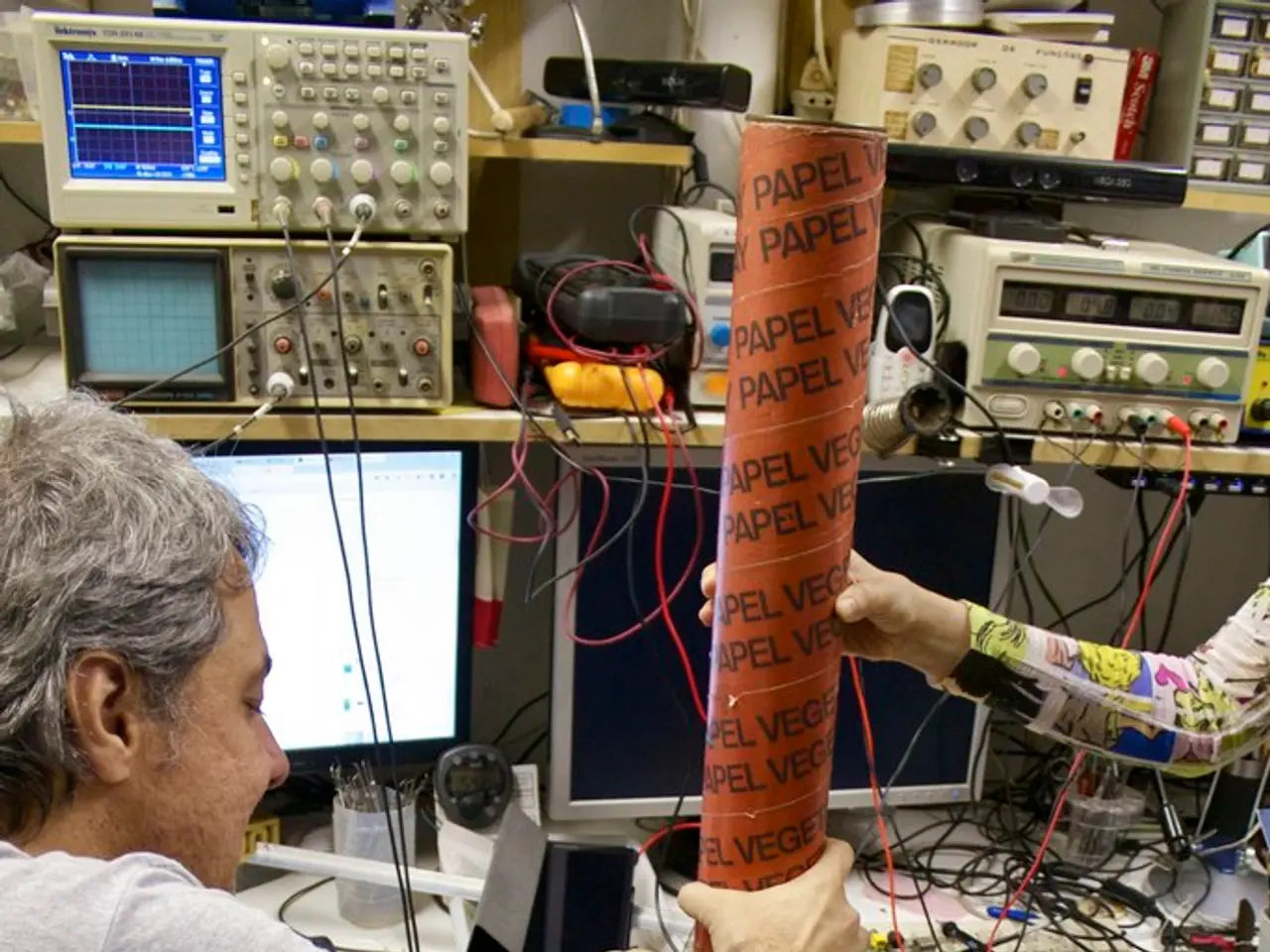Strategies for Maintaining Cognitive Clarity in High-Stress Situations
In today's fast-paced world, the ability to maintain mental clarity and perform optimally under pressure is crucial. Here's a guide to help you train and optimise your brain for such situations.
The sympathetic nervous system, activated during high-pressure moments, reduces access to the prefrontal cortex, the decision-making centre, and impairs working memory and attention control. However, there are several strategies to counteract these effects.
Engaging in neuroplasticity-based cognitive exercises is one such strategy. This involves participating in new and challenging mental activities such as learning new skills, solving puzzles, and practicing tasks that stimulate different brain areas. By rewiring the brain through such activities, memory, processing speed, and problem-solving abilities can be improved. A Harvard study showed a 30% improvement in memory and problem-solving by practicing such activities consistently over months.
Practicing mindfulness meditation and breathwork is another effective method. Regular practice enhances focus, cognitive flexibility, and emotional regulation, helping you remain calm and present under pressure, which improves decision-making and mental clarity. Meditation particularly boosts prefrontal cortex activity, the brain's 'CEO' region responsible for executive functions like planning and impulse control.
Mastering shifting between broad and narrow focus is also crucial. Use broad focus to plan and anticipate (big-picture thinking), then narrow focus to execute specific tasks without distraction. Incorporate physical anchors like breathwork or progressive muscle relaxation to reset attention during stressful or cognitively demanding moments.
Incorporating diverse brain exercises daily that engage multiple brain regions, such as memorisation, balance exercises, and word or strategy games, is also beneficial. Limit intense sessions to about 30 minutes for optimal results to avoid mental fatigue.
Using evidence-based cognitive challenges like the Stroop test and other attention-control exercises can boost selective attention and processing under pressure.
In addition to these techniques, prioritising 7-9 hours of sleep in the days leading up to an important event is beneficial. Sleep deprivation exacerbates the negative effects of stress on the brain. Light exercise before a high-pressure moment can lower cortisol levels and improve cognitive control.
Lion's Mane Mushroom, N-Acetyl L-Tyrosine, Rhodiola Rosea, Citicoline, L-Theanine, and mental rehearsal of high-stress scenarios are other tools that can support mental clarity and performance under pressure. However, it's important to remember that the optimal routine may vary per individual, and physical health factors (sleep, nutrition, exercise) also strongly affect cognitive performance.
In conclusion, consistently combining cognitive challenges to leverage neuroplasticity, mindfulness meditation for calm and focus, and training attention allocation can optimise mental clarity and performance when pressure mounts. Integrate these mental strategies with healthy lifestyle habits for best results.
[1] Merzenich, M. M., & Jenkins, W. (2004). Neuroplasticity: the basis of human rehabilitation. Nature Reviews Neuroscience, 5(11), 801-812. [2] Hölzel, B. K., Lazar, S. W., Gard, T., Schuman-Olivier, Z., Vago, D. R., & Ott, U. (2011). How does mindfulness meditation work? Proposing mechanisms of action from a conceptual and neural perspective. Perspectives on psychological science, 6(6), 629-639. [3] Jha, A. P., Krompinger, J., & Baine, M. (2008). Mindfulness training alters brain structure: Prospective analysis of meditation practitioners using voxel-based morphometry. Psychiatry Research: Neuroimaging, 188(1), 36-43. [4] Davidson, R. J., Kabat-Zinn, J., Schumacher, J., Rosenkranz, M., Muller, D., Santorelli, S. F., ... & Sheridan, J. F. (2003). Alterations in brain and immune function produced by mindfulness meditation. Psychosomatic Medicine, 65(4), 564-570. [5] Stroop, J. R. (1935). Studies of interference in serial verbal reactions. Journal of experimental psychology, 22(6), 643-662.
- In high-pressure situations, the sympathetic nervous system restricts access to the prefrontal cortex, affecting decision-making, working memory, and attention control.
- Neuroplasticity-based cognitive exercises can improve memory, processing speed, and problem-solving abilities by rewiring the brain through new and challenging mental activities.
- Practicing mindfulness meditation and breathwork enhances focus, cognitive flexibility, and emotional regulation, helping maintain calm and presence under pressure.
- Shifting between broad and narrow focus is essential in mental tasks; use broad focus for planning and anticipating, then narrow focus for executing tasks without distraction.
- Incorporating diverse brain exercises daily, such as memorisation, balance exercises, and word or strategy games, engages multiple brain regions and enhances overall cognitive performance.
- Using attention-control exercises like the Stroop test boosts selective attention and processing under pressure.
- Prioritizing 7-9 hours of sleep in the days leading up to an important event benefits cognitive performance by reducing the negative effects of stress on the brain.
- Light exercise before a high-pressure moment can lower cortisol levels and improve cognitive control.
- Lion's Mane Mushroom, N-Acetyl L-Tyrosine, Rhodiola Rosea, Citicoline, L-Theanine, and mental rehearsal of high-stress scenarios are other tools to support mental clarity and performance under pressure.
- While these tools can help, it's important to remember that the optimal routine may vary per individual, and physical health factors (sleep, nutrition, exercise) strongly affect cognitive performance.
- To optimize mental clarity and performance under pressure, consistently combine cognitive challenges with neuroplasticity, mindfulness meditation for calm and focus, and training attention allocation while integrating these strategies with a healthy lifestyle that emphasizes sleep, nutrition, exercise, and mental health therapies and treatments.




